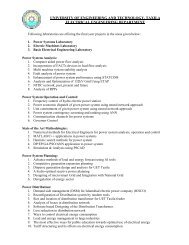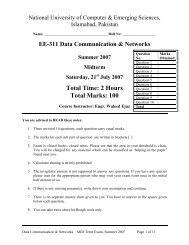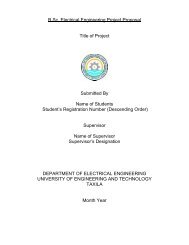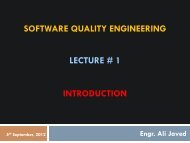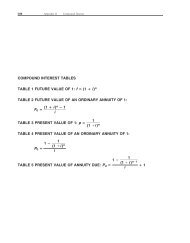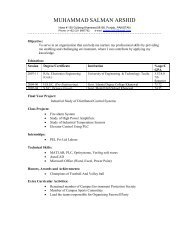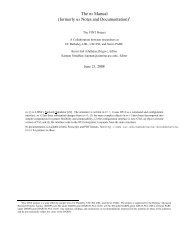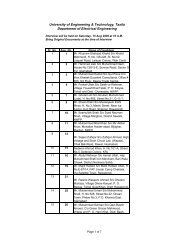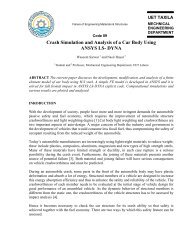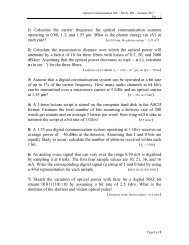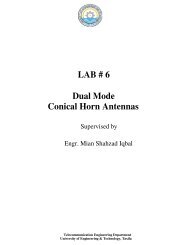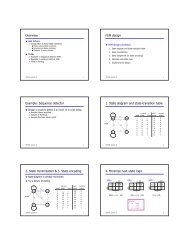View File - University of Engineering and Technology, Taxila
View File - University of Engineering and Technology, Taxila
View File - University of Engineering and Technology, Taxila
You also want an ePaper? Increase the reach of your titles
YUMPU automatically turns print PDFs into web optimized ePapers that Google loves.
7.2 NATIONAL AND REGIONAL REGULATIONSIt is logical to institute a national or regional regulatory body that oversees <strong>and</strong>manages the country’s or region’s spectrum <strong>and</strong> adopt national (or regional)legislation that includes, as the basic minimum, the essential provisions <strong>of</strong> theInternational Telecommunication Convention. This is necessary because theInternational Telecommunication Convention <strong>and</strong> Radio Regulations annexedto the Convention are intergovernmental treaties, which have been ratified <strong>and</strong>accepted by the governments <strong>of</strong> the countries. These governments are bound toapply the provisions <strong>of</strong> the treaties in their countries <strong>and</strong> the other geographicalareas under their jurisdiction. In reality, a regional body is formed in thecontext <strong>of</strong> bilateral agreements with neighboring countries to settle policy oroperational issues, for the purpose <strong>of</strong> coordinating the establishment <strong>of</strong>telecommunication systems <strong>and</strong> importantly for other items <strong>of</strong> mutual interest.To this effect, a country must adopt national legislation, that is enforceable,enabling the national regulatory body1. To develop regulations for effective use <strong>of</strong> spectrum on the basis <strong>of</strong>national or regional priorities.2. To coordinate <strong>and</strong> oversee long-term spectrum management policy<strong>and</strong> planning.3. To identify the spectrum requirements, which satisfy the need <strong>of</strong> thecountry or region.4. To develop technical st<strong>and</strong>ards.5. To monitor, detect, <strong>and</strong> resolve operational irregularities, harmfulinterference, <strong>and</strong> technical ambiguities.6. To conduct negotiations relating to frequency spectrum management<strong>and</strong> related matters that may improve technical <strong>and</strong> administrativecooperation with other countries <strong>and</strong> internationalorganizations.7. To keep accurate <strong>and</strong> up-to-date data records. This is a requirement<strong>of</strong> utmost importance for effective national, regional, <strong>and</strong> internationalcoordination; licensing <strong>and</strong> enforcement activities; policyformulation; interference investigation <strong>and</strong> resolution; <strong>and</strong> financialconsiderations.8. To participate in ITU Study Group(s) where national or regionalinterests are safeguarded.9. To provide personnel training for frequency management, such astraining in the IFRB, CCIR, <strong>and</strong> that supplemented by other meanslike seminars organized by the IFRB, exchange <strong>of</strong> staff with othercountries, <strong>and</strong> h<strong>and</strong>s-on operational experience on the job.Copyright © 2002 by Marcel Dekker, Inc. All Rights Reserved.



